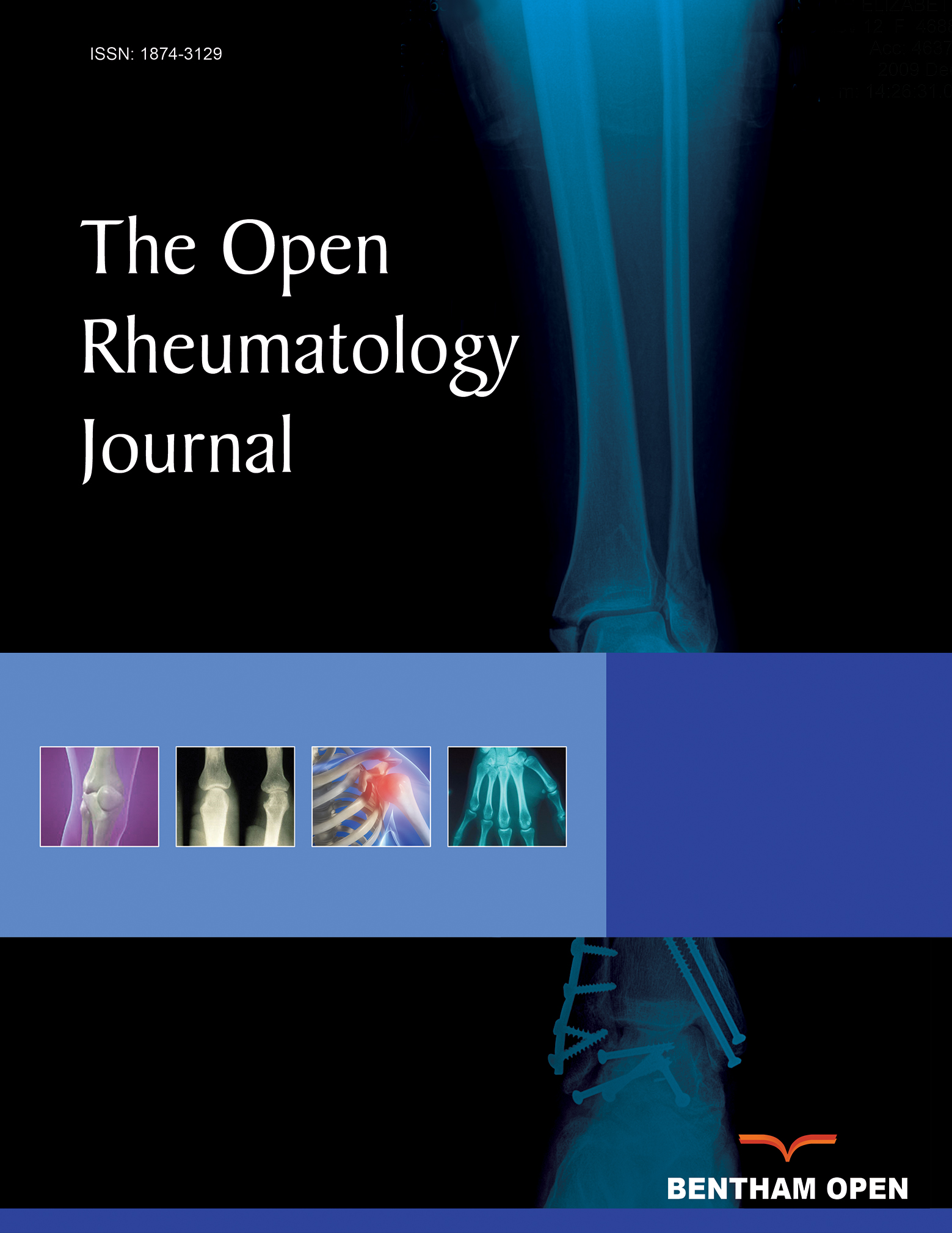All published articles of this journal are available on ScienceDirect.
The Protein Tyrosine Phosphatase Non-receptor Type N22 (PTPN22) Gene Functional Polymorphism (1858T) is not Associated with Rheumatoid Arthritis in Kuwaiti Patients
Abstract
Background:
Rheumatoid Arthritis (RA) is a chronic disorder characterized by an inflammation of synovial tissue in joints resulting in pain, deformities and affects the quality of life. The gene for protein tyrosine phosphatase non-receptor type 22 (PTPN22) encodes a lymphoid specific phosphatase (LYP), which serves as a negative regulator of T lymphocyte activation and is associated with a number of autoimmune/chronic diseases in various ethnic groups.
Objective:
This study was undertaken to investigate an association between PTPN22 gene functional polymorphism (C1858T; rs2476601) and rheumatoid arthritis (RA) in Kuwaiti Arabs. The frequency of this candidate locus was compared between Kuwaiti RA patients and the controls and with that reported from other populations.
Methods:
The study was carried out in 191 Kuwaiti RA patients and 214 healthy controls. The diagnosis of RA was carried out according to the guidelines of the American College of Rheumatology (ACR). The genotypes of PTPN22 gene (C1858T) polymorphism were detected by polymerase chain reaction-restriction fragment length polymorphism (PCR-RFLP) and confirmed by DNA sequence analysis in RA patients and controls.
Results:
The TT genotype of PTPN22 gene functional polymorphism C1858T was found in 2/191 (1%) in RA patients compared to 2/214 (1%) in the controls (P = 1.0). In contrast, heterozygous CT genotype was detected in 3/191 (1.57%) RA patients compared to 32/214 (14.9%) in the controls. The CC genotype was detected in 186/191 (97.38%), RA patients while it was detected in 180/214 (84.1%) of the controls. The two RA patients who carried the homozygous variant (TT) genotype were both positive for rheumatoid factor (RF) and did not have any extra-articular manifestations. Amongst the Kuwaiti RA patients, 27% had a family history of RA. No correlation was found between the activity/severity of the disease and PTPN22 gene polymorphism genotypes.
Conclusion:
This study did not find an association between the PTPN22 gene functional polymorphism (C1858T) and clinical manifestation and activity/severity of RA in Kuwaiti Arabs. This is in sharp contrast to previous reports from Caucasian and some other populations in which a positive association of PTPN22 gene (C1858T) polymorphism with genetic susceptibility to RA has been reported.


